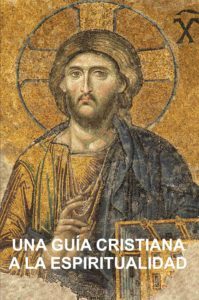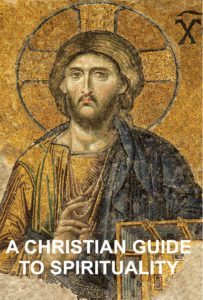Stephen W. Hiemstra's Blog, page 138
December 6, 2020
Prayer Day 3
By Stephen W. Hiemstra
Heavenly Father:
We praise you for creating heaven and earth; for creating all that is, that was, and that is to come; for creating things seen and unseen.
We praise you for sharing yourself in the person of Jesus of Nazareth; our role model in life, redeemer in death, and hope for the future.
We praise you for the Holy Spirit, who is ever present with us; who sustains all things; who showers us with spiritual gifts.
Open our hearts; illumine our minds; strengthen our hands in your service.
In Jesus’ name, Amen.
Prayer Day 3
Also see:
Believer’s Prayer
Other ways to engage online:
Author site: http://www.StephenWHiemstra.net
Purchase Book: http://www.T2Pneuma.com
Newsletter: https://bit.ly/Thanks_2020
The post Prayer Day 3 appeared first on T2Pneuma.net.
Oración Dia 3
 Por Stephen W. Hiemstra
Por Stephen W. HiemstraPadre Todopoderoso, amado hijo, Espíritu siempre presente.
Te alabamos por crearnos a Tu imagen, por caminar con nosotros incluso cuando pecamos, y por restaurarnos pacientemente en Tu favor.
Fortalece nuestro sentido de Tu identidad.
En el poder del Espíritu Santo, destapa nuestros oídos; descubre nuestros ojos; suaviza nuestros corazones; ilumina nuestras mentes.
Moldéanos más y más a Tu imagen para que podamos también crecer.
En el nombre de Jesús oramos. Amén.
Oración Dia 3
Ver también:
Gospel as Divine Template
Otras formas de participar en línea:
Sitio del autor: http://www.StephenWHiemstra.net,
Comprar Libro: http://www.T2Pneuma.com.
Boletín informativo: https://bit.ly/Thanks_2020
The post Oración Dia 3 appeared first on T2Pneuma.net.
Gebetstag 3

Von Stephen W. Hiemstra
Allmächtiger Vater, geliebter Sohn, allgegenwärtiger Geist.
Wir preisen dich dafür, da
December 4, 2020
Who are We?
“Who do people say that I am?” And they told him, John the Baptist; and others say, Elijah; and others, one of the prophets.” And he asked them, “But who do you say that I am?” Peter answered him, “You are the Christ.” (Mark 8:27–29)
By Stephen W. Hiemstra
Who is Jesus Christ to you?
Jesus’ question to the disciples—who do people say that I am—is a question that demands a response. Is Jesus a good teacher; a prophet; a savior; or Lord of Lords? Our response depends on our belief about Jesus’ identity (Chan 1998, 40). It also informs us as to who we once were, who we are now, and who we will become in the future.
If Jesus is merely a good teacher, then our actions are motivated primarily by abstract obligation. We might as easily be guided by the Ten Commandments. Law has the virtue of being clear and concrete. The Ten Commandments outline moral law while other parts of the first five books of the Bible give us both ceremonial law (how to worship) and case law (what to do in special situations). However, the abstract nature of this obligation means that it is contingent on the commitment of the heart. The mind acknowledges the obligation, but the heart is uncommitted.
If Jesus is only a prophet, then our actions are motivated by abstract expectation. A focus on law is possible because the role of an Old Testament prophet was, primarily, to remind people of their obligation under the law. However, both head and heart are contingent—we do not know if the prophecy will take place or if we care. In short, we are conflicted and uncommitted.
If Jesus is only a savior, then our actions are motivated primarily by the act of receiving. We cherish the assurance of salvation, but never count the cost (Luke 14:27–30). In effect, we have become fans—long on enthusiasm, but short on commitment. Fans want entertainment and a good show—they want a winning team. The Apostle’s Creed, the Lord’s Prayer, and the Ten Commandments are all things that we have committed to memory, but when things become inconvenient our resolve dissipates.
If Jesus is Lord of lords, then our actions are motivated by an obligation of loyalty. In this case, our response is qualitatively different because both our hearts and minds are committed. We want to be just like Jesus. We want to act like Jesus; we want to pray like Jesus; we want to tell Jesus’ life story. Suddenly, the Apostle’s Creed, the Lord’s Prayer, and the Ten Commandments start looking like important clues as to how to pray, to live our lives, and to discuss our faith with others.
Jesus is also the perfect match between form (being divine and human) and content (without sin). In the Hebrew mind, this perfect match makes Him both good and beautiful (Dyrness 2001, 81). Loyalty is a fitting characteristic for a servant and it a characteristic of Christ himself (Philippians 2:5–11). Our loyalty to God accordingly allows us to share in Christ’s goodness and his beauty—has anyone told you lately that you are beautiful? (Isaiah 62:5)
The church is composed of people who mostly share one thing in common—we are forgiven. Each of us must walk the path of faith alone, but at no step along the way are we truly alone because Jesus walks with us. If we persist in the walk of faith, our perception of Jesus will evolve from teacher to prophet to savior, and Lord of Lords. As we make this journey, our response to restoration and identity as persons will likewise evolve.
References
Chan, Simon. 1998. Spiritual Theology: A Systemic Study of the Christian Life. Downers Grove, IL: IVP Academic.
Dyrness, William A. 2001. Visual Faith: Art, Theology, and Worship in Dialogue. Grand Rapids, MI: Baker Academic.
Who are We?
Also see:
Preface to A Christian Guide to Spirituality
Other ways to engage online:
Author site: http://www.StephenWHiemstra.net
Purchase Book: http://www.T2Pneuma.com
Newsletter: https://bit.ly/Thanks_2020
The post Who are We? appeared first on T2Pneuma.net.
Quién Somos?
“Salió Jesús con sus discípulos a las aldeas de Cesarea de Filipo; y en el camino preguntó a sus discípulos, diciéndoles: ¿Quién dicen los hombres que soy yo? Y le respondieron, diciendo: Unos, Juan el Bautista; y otros Elías; pero otros, uno de los profetas. Él les preguntó de nuevo: Pero vosotros, ¿quién decís que soy yo? Respondiendo Pedro, le dijo : Tú eres el Cristo.” (Marco 8:27-29 LBA)
Por Stephen W. Hiemstra
¿Quién es Jesucristo a tí?
La pregunta de Jesús a los discípulos—quién dicen que soy—es una cuestión que demanda una respuesta. ¿Es Jesus un buen maestro; un profeta; un Salvador; or Senor de Senores? Nuestra respuesta depende de nuestra creencia acerca de la identidad de Cristo (Chan 1998, 40). Nuestra respuesta informenos de quien fuimos despues, quien somos ahora, y quien serimos en el futuro.
Si Jesús es solamente un buen maestro, entonces nuestra actividades estan motivado por lo major por obligacion abstracta. En esta caso, los dies mandamientos son tal vez un guia mejor como la gracia por que La ley es claro y concreto. Los dies mandamientos esbozan la ley moral mientras las otras capitulos de la Pentateuco presentarnos ambos la ley ceremonial (cómo alabar) y la ley particular (jurisprudencia o qué hacer en casos especificios). Ademas, la naturaleza abstracto de esta obligación significa que depender por el compromise de la corazón. La mente reconoce la obligacion, pero la corazón no está comprometida.
Si Jesús es solamente un profeta, entonces nuestra acciones estan motivado por expectacion abstracta. Un enforque de la ley es possible porque el trabajo del profeta del testamento antigua es a recordar personas de sus obligacion baja la ley. Por desgracia, la mente y el Corazon ambos son contingente—no sabemos que la profecia pasara o si la creemos. Al corto, somos en conflicto internamente y no comprometida.
Si Jesús es solamente un salvador, nuestra actividades son motivadas primeramente por el acto de receiver. Valoramos la certitude de salvacion, pero no contamos el costo (Luke 14:27-30). En effecto, somos aficionados—tinimos muchos entusiasmo, pero menos comprometido. Aficionados quieren entretenimiento y un buen partido—querran un equipo que ganar. El Credo de los Apostles, el Oracion del Senior, y los Diez Mandamientos son cosas que recordamos completamente, pero las cosas serian inconveniente, la resolucion desaparece.
Si Jesús es Senor de Senores, entonces nuestra acciones son motivado por un obligacion de fidelidad. En esto caso, nuestra respuesta es diferente cualitativamente porque nuestra Corazon y mente son comprometido. Querremos ser solo como Jesús. Querremos hacer como Jesús; querremos orar como Jesús; querremos decir la historia de la vida de Jesús. Inmediamente, el Credo de los Apostles, el Oracion del Senior, y los Diez Mandamientos comiencen a mirar como pistas importante como que oramos, vivir la vida, y discutir nuestro fe con otras personas.
Jesús es también el complemento perfecto entre la forma (siendo ambos divina y humano) y contento—sino pecados. En la mentalidad Hebrero, este complement se significa que alguien es ambos bueno y guapo (Dyrness 2001,81). Fidelidad es una caracteristica apropriada para un esclavo y es también un caracteristico de Cristo mismo (Phil 2:5-11). Nuestra fidelidad a Diós entonce, no permita a compartir en la bondad de Cristo y su belleza—has dicho recientemente alguien que tu estas bello? (Isa 62:5)
La iglesia es lleno de gente quién por lo major compartir solamente una cosa—estamos perdonado. Cada una de nosotros caminar por el camino de fe solo, pero durante ninguno paso por este camino estamos totalmente solo porque Jesús camina con nostros. Si persistamos en el caminos de fe, nuestra percepción de Jesús va a evolucionar de maestro a profeta, de salvador a senor y a senor de senores. Como viajamos este camino, nuestra respuesta de restoracion y identidad va a evolucionar también.
References
Chan, Simon. 1998. Spiritual Theology: A Systemic Study of the Christian Life. Downers Grove, IL: IVP Academic.
Dyrness, William A. 2001. Visual Faith: Art, Theology, and Worship in Dialogue. Grand Rapids, MI: Baker Academic.
Quién Somos?
Ver también:
Prefacio de La Guía Cristiana a la Espiritualidad
Otras formas de participar en línea:
Sitio del autor: http://www.StephenWHiemstra.net
Comprar Libro: http://www.T2Pneuma.com
Boletín informativo: https://bit.ly/Thanks_2020
The post Quién Somos? appeared first on T2Pneuma.net.
December 1, 2020
Bell Introduces Writing as a Business

James Scott Bell. 2009. The Art of War for Writers: Fiction Writing Strategies, Tactics, and Exercises. Cinninnati: Writers Digest Books.
Review by Stephen W. Hiemstra
Even if you write for an audience of one, writing does not become ministry until someone reads your book. And they cannot read your book until they buy one. Thus, even Christian authors need to attend to the business side of writing.
Introduction
James Scott Bell’s The Art of War for Writers begins with this purpose statement:
“What I want to do with this collection is offer you some helpful observations based on more than twenty years in the fiction writing game. This is not a comprehensive ‘how to’ on fiction. I’ve written two other books in that form. Rather, I seek to fill in some ‘cracks’ in what is normally taught in writing books and classes.” (1)
Probably the largest crack is that most authors, like most technology entrepreneurs, fall in love with the craft (or insert your favorite technology) and forget that they are in business.
In the early years of Microsoft, Bill Gates easily qualified as the most hated man in the tech world because his vision was to turn the personal-computer hobby into a business and bought out most of his competitors for cheap. Developers used to whine that Gates made his fortune with MS DOS operating system, which he bought for peanuts, and he didn’t even program it himself. Taking a page from Gate’s book, Bell reminds authors: “You are a business, and your books are the product.” (186)
Part of any successful business is having a quality product—the craft matters (5)—but it is not all that matters. Gates may not have programmed MS DOS himself, but Gates was perfectly capable of standing up and answering technical questions from an auditorium filled with system administrators, programmers, and computer technicians—this was an amazing feat to witness, as I did in the early 1990s.
Bell especially does the same thing—focusing on the details of the writing craft—in the first two-thirds of his book. This is his way of earning “street cred” to enlarge the conversation to include the business side of writing and to differentiate himself from the hordes of writing instructors who are themselves wannabees, not published authors.
Background
On his website, we read:
Jim has taught writing at Pepperdine University and at numerous writers conferences in the United States, Canada, Great Britain, Australia and New Zealand. He attended the University of California, Santa Barbara where he studied writing with Raymond Carver, and graduated with honors from the University of Southern California Law Center.
In addition to his writing books, he is known for writing thrillers, television appearances, and legal work.
Student of Sun Tzu
Bell writes in a style that might aptly be described as explained proverbs or aphorisms, many of which are based on the writings of Sun Tzu’s The Art of War (400-329 BC). The Art of War is must reading for military strategists, but many of his proverbs have general applicably. Bell’s application to writing accordingly stands within a long tradition of such analogies. Bell writes with 77 proverbs organized into three parts: reconnaissance, tactics, and strategy.
The first proverb under reconnaissance is: “The writer who observes the battlefield before entering the fray will be better equipped to plan strategy and tactics.” (8) In my own career as an economist, I have been a writer from my days as an intern, fully understanding the publish or perish mentality of the field.
The first proverb under tactics is: “The writer of potential greatness settles not for ‘mere’ fiction.” (68) In my first career, my title was economist, not author, and the salary went with the title even if I spent most of my time researching to write. I was not “merely” a writer any more than Hemingway was “merely” a journalist.
The first proverb under strategy was cited in my introduction. The second one is: “A goal is just a dream unless it has legs.” (192) Although I seldom bring it up, my business card states my goal of “writing nonfiction Christian books in English and Spanish.” This fall I have widened this goal to include a novella (fiction) and to translate my first book into German, but my goals have been pretty firm since September 2013 when drafted that first book in English.
Assessment
James Scott Bell’s The Art of War for Writers: Fiction Writing Strategies, Tactics, and Exercises is helpful reminder of the many moving parts to a writer’s career. Because author clubs typically have two or three wannabees for every published author, many could benefit from a better understanding the business of writing that Bell provides. If anything, this is advice is more valuable today that it was when this book was published in 2009. I find such advice most helpful during transitional periods in the publication process when writing, editing, or publicity screams the loudest for my attention.
Actually, a bit more than two-thirds of the book: 183 out of 259 pages or 71 percent.
https://www.jamesscottbell.com.
Bell Introduces Writing as a Business
Also See:
Bell, James Scott. 2004. Plot and Structure: Techniques and Exercises for Crafting a Plot that Grips Readers from Start to Finish. Cincinnati: Writer’s Digest Books. (review)
Bell, James Scott. 2008. Revision & Self-Editing: Techniques for Transforming Your First Draft into a Finished Novel. Cincinnati: Writer’s Digest Books. (Review)
Bell, James Scott. 2014. How to Write Dazzling Dialogue: The Fastest Way to Improve Any Manuscript. Woodland Hills, CA: Compendium Press. (review)
Bell, James Scott. 2019. The Last Fifty Pages: The Art and Craft of Unforgettable Endings. Woodland Hills, CA: Compendium Press. (review)
Books, Films, and Ministry
Other ways to engage online:
Author site: http://www.StephenWHiemstra.net
Publisher site: http://www.T2Pneuma.com
Newsletter: https://bit.ly/Thanks_2020
The post Bell Introduces Writing as a Business appeared first on T2Pneuma.net.
November 30, 2020
God’s Attributes: Monday Monologues (podcast) November 30, 2020
 Stephen W. Hiemstra 2020 (Ken Burtram Photography)
Stephen W. Hiemstra 2020 (Ken Burtram Photography)By Stephen W. Hiemstra
This morning I will share a prayer and reflect on the God’s Attributes. After listening, please click here to take a brief listener survey (10 questions).
To listen, click on this link.
Hear the words; Walk the steps; Experience the joy!
God’s Attributes: Monday Monologues (podcast) November 30, 2020
Also see:
Monday Monologue On March 26, 2018
Other ways to engage online:
Author site: http://www.StephenWHiemstra.net,
Publisher site: http://www.T2Pneuma.com.
Newsletter: https://bit.ly/Thanks_2020
The post God’s Attributes: Monday Monologues (podcast) November 30, 2020 appeared first on T2Pneuma.net.
November 29, 2020
Prayer Day 2
By Stephen W. Hiemstra
Heavenly Father:
We praise you for creating heaven and earth; for creating all that is, that was, and that is to come; for creating things seen and unseen.
We praise you for sharing yourself in the person of Jesus of Nazareth; our role model in life, redeemer in death, and hope for the future.
We praise you for the Holy Spirit, who is ever present with us; who sustains all things; who showers us with spiritual gifts.
Open our hearts; illumine our minds; strengthen our hands in your service.
In Jesus’ name, Amen.
Prayer Day 2
Also see:
Believer’s Prayer
Other ways to engage online:
Author site: http://www.StephenWHiemstra.net
Purchase Book: http://www.T2Pneuma.com
Newsletter: https://bit.ly/Thanks_2020
The post Prayer Day 2 appeared first on T2Pneuma.net.
Oración Dia 2
 Por Stephen W. Hiemstra
Por Stephen W. HiemstraPadre Celestial,
te alabamos para creación de los cielos y de la tierra; para creación de todo que es, que fue, y que sera; para creación de las cosas visibles e invisibles.
Te alabamos por compartir ti mismo en la persona de Jesús de Nazaret; nuestro modelo en la vida, redentor en el muerto, y la esperanza para el futuro.
Te alabamos por el Espíritu Santo, quien está presente con nosotros que duchar nos con dones espirituales y sustentar todo las cosas.
Abierta nuestras corazones, iluminar nuestros mentes, fortalecer nuestros manos en su servicio.
En el nombre de Jesús, Amen.
Oración Dia 2
Ver también:
Gospel as Divine Template
Otras formas de participar en línea:
Sitio del autor: http://www.StephenWHiemstra.net,
Comprar Libro: http://www.T2Pneuma.com.
Boletín informativo: https://bit.ly/Thanks_2020
The post Oración Dia 2 appeared first on T2Pneuma.net.





